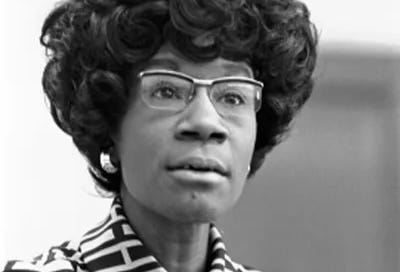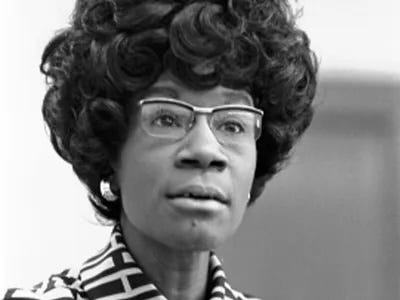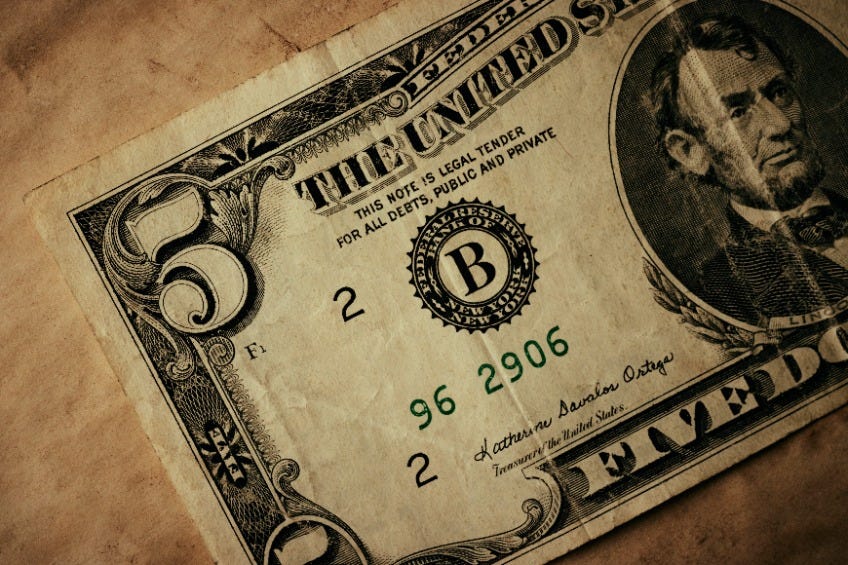Today In Black History
Shirley Chisholm, 1st African American Congresswoman and major party presidential candidate
Issue #543 Today In Black History, Monday, March 25, 2024
Today’s Black History WOW!
Shirley St. Hill Chisholm was born in Brooklyn, New York, as the eldest of four daughters of immigrant parents from Guyana and Barbados. She graduated magna cum laud from Brooklyn College in 1946 with a B.A. and from Columbia University in 1951 with an M.A. While in college, Shirley St. Hill pledged Delta Sigma Theta Sorority, Inc.
Mrs. Chisholm was the director of New York City’s Hamilton-Madison Child Care Center from 1953 to 1959 and as an education consultant for the city’s daycare division from 1959 through 1964. From 1964 through 1968 she represented her Brooklyn district in the New York state legislature.
In 1968 Chisholm ran for the U.S. House of Representatives where she defeated the heavily favored famed civil rights leader James Farmer. She became the first African American woman to be elected to Congress. Throughout her career, she fought tirelessly for the rights of women and minorities, advocating for equal access to education, healthcare, and employment opportunities.
Taking office in 1969, Congresswoman Chisholm quickly became known as a strong liberal who opposed weapons development and favored full-employment proposals. She introduced more than fifty pieces of legislation and championed racial and gender equality, the plight of the poor, and ending the Vietnam War. She was a co-founder of the National Women's Political Caucus in 1971, and in 1977 became the first Black woman and second woman ever to serve on the powerful House Rules Committee.
Chisholm's groundbreaking campaign for the Democratic presidential nomination in 1972 also made history, as she became the first African American and the first woman to seek the presidency from a major political party.
Racial and gender discrimination made Chisholm’s quest for the 1972 Democratic Party presidential nomination even more difficult. She was blocked from participating in televised primary debates, and after taking legal action, was permitted to make just one speech. Still, she entered 12 primaries and garnered 152 of the delegates’ votes (10% of the total)—despite an under-financed campaign and contentiousness from the predominantly male Congressional Black Caucus.
While still in Congress, Chisholm founded the National Women’s Political Caucus, supported the Equal Rights Amendment, and legalized abortions. She also wrote two autobiographies, Unbought and Unbossed in 1970 and The Good Fight in 1973.
After she retired from Congress, Chisholm was the Purington Professor at Mount Holyoke College from 1983 through 1987 and was a visiting scholar at Spelman College in 1985. In 1993 she was invited by President Bill Clinton to serve as ambassador to Jamaica, but she declined because of poor health. In that same year, she was inducted into the National Women's Hall of Fame.
Shirley Chisholm died on January 1, 2005, at her home in Ormond Beach, Florida; she was 80 years old. She is buried at the Birchwood Mausoleum at Forest Lawn Cemetery in Buffalo, where the legend inscribed on her vault reads: "Unbought and Unbossed".
Today In Black History
- In 1807, the British Parliament abolished the slave trade throughout the British Empire.
- In 1931, the “Scottsboro Boys,” nine African American teenage young men, were falsely accused in Scottsboro, Alabama of raping two white women and collectively served more than 100 years in prison after initially being sentenced to death. There was no medical evidence that the rapes even took place. The right of African Americans to serve on juries was established because of this case.
- In 1966, the U.S. Supreme Court ruled that the “poll tax” used for the disenfranchisement of Black voters, was unconstitutional.
- In 1975, Samuel Poor, a Black soldier who fought during the American Revolution, was commemorated on a U.S. Postal Stamp.
- In 1991, Whoopi Goldberg became the 2nd Black woman (after Hatti McDaniel in 1939 ) to win an Oscar for Best Supporting Actress.
- The “Comments” feature has been disabled. Instead, let’s discuss these facts in our community on Substack Notes. You can also read other Substack publications without subscribing to them when you join Notes.
This post is free to read/listen to for three days after publication. To have 365 24/7 access to all our posts and podcast episodes and financially support “We Are Speaking” for no more than $5 per month, please subscribe at the paid level. You will receive a 7-day FREE trial!






